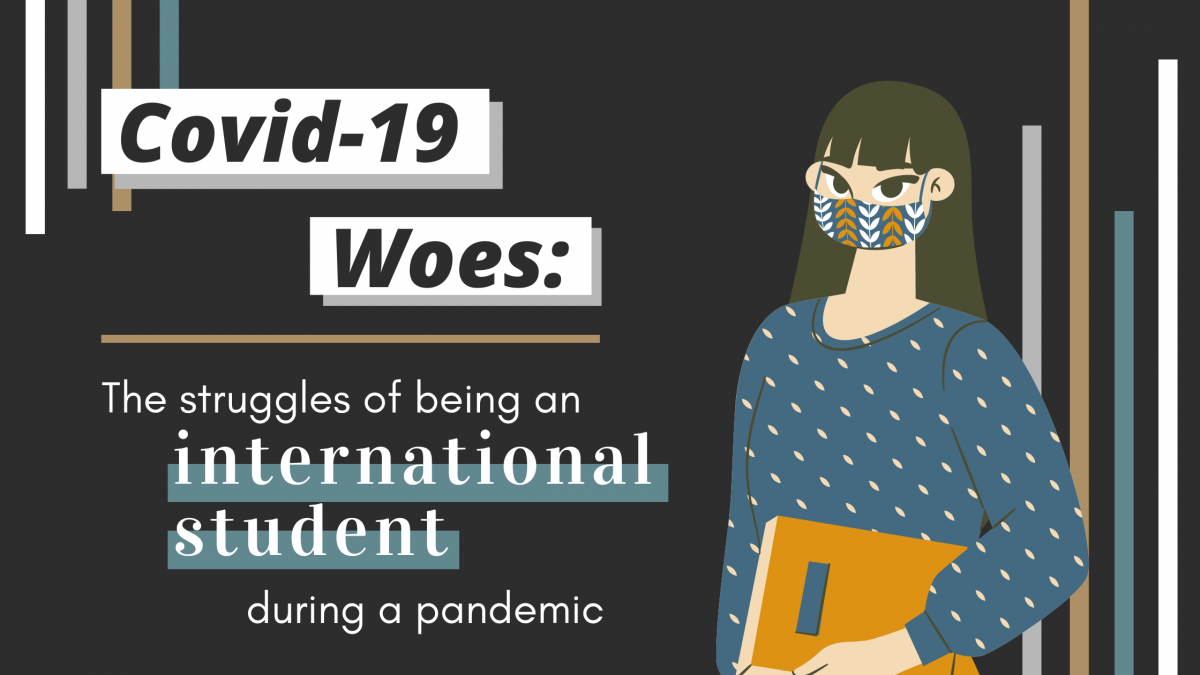In one way or another, university students worldwide have undoubtedly felt the wrath of Covid-19. From cancelled exchange programmes to being relegated to Zoom University for a semester, it has certainly been a challenging time for many. If you happen to be an international student, Covid-19 poses a fresh slew of challenges to all aspects of school life. Forget grievances about boring virtual lessons or the discomfort of socially-distanced classes with masks on. For international students, the consequences they face can be as drastic as being stranded alone in an unfamiliar country, completely in the dark about when they can return to the comfort of family and home.
Given the sheer uncertainty of our current situation and with no end to Covid-19 in sight, there is no better time to check in on our international students and whether they are receiving ample support from NUS. To shed light on the situation, I spoke with three international students who are also members of International Student Relations (ISR), a committee under NUSSU, to learn more about the struggles of being an international student in NUS during Covid-19.
Concerns about virtual learning
University students around the world are now forced to contend with the harsh realities brought about by Zoom University and the reduced quality of education. However, international students are arguably more affected by this change due to factors like time differences and even wifi connection. As such, the experience of learning in virtual classes was one of the common complaints raised by these students.
“The school fees are still the same even though all classes are on Zoom. It’s not that I doubt the quality of the education, it’s that it simply can’t be compared to face-to-face classes. It’s very hard to experience the same learning when you’re in a different country with a spotty internet connection,” said Valencia, a second-year FASS student and Indonesian national.
Lack of timely, clear communication
Apart from academic concerns, another source of frustration was the lack of timely, clear communication on the part of NUS. Most notably, the circulars sent out via email to the school population often neglected to address concerns faced by international students, despite them bearing the brunt of the impact of Covid-19 restrictions. In addition, the last minute dissemination of information only exacerbated the situation for international students who required clear direction to plan ahead.
Karisshma, a second-year Business Administration major and Malaysian national expressed her frustrations on this issue saying that “the school never really gave us an upfront indication of whether our modules would be online or face-to-face. It made planning when to come back very hard for us. When they actually released the information, it was one to two weeks before school started. I personally chose to come back because I had some physical lessons. In Week 0, the professor emailed us to say all the classes for that face-to-face module were online. I could have known much earlier and I could have chosen not to come back.”
Furthermore, the absence of an accessible communication channel between international students and the school creates barriers for students to seek clarification for their doubts. “The underlying issue, which ISR is trying to rectify in the upcoming year, is that there isn’t a proper channel to direct information to international students. This problem has always been there since the beginning, it’s just becoming more prevalent due to Covid-19,” said Jiayi, a second-year Business Administration major and Malaysian national.
Evidently, the lack of upfront communication was a source of major discontent amongst international students, but its implications go beyond the inconvenience and uncertainty caused to tangible financial consequences. For many, the costs of plane tickets, on-campus accommodation and fulfilling the Stay-Home Notice (SHN), which can amount to thousands of dollars, are simply too risky to bear with incomplete information. As Valencia pointed out, “you can’t assume that everyone can afford these costs. Many of us don’t have our parents in Singapore and we can’t just live somewhere else.” Hence, making these monumental decisions can be a heavy emotional and financial burden on these students.
ISR’s Efforts
Recognising the multitude of problems and issues that international students are facing, ISR is eagerly trying to create solutions to improve communications between the school and the international student community. “On ISR’s side, we are trying to have a proper avenue for international students to convey their queries and for us to communicate with them and try to help them in any way we can by liaising with the school,” said Jiayi.
As such, one of ISR’s initiatives in the upcoming year is to create an official Telegram channel to facilitate two-way communication between students and the school and provide a central source of information. As Karisshma shared: “different students from different countries have their own different communication groups, but we want to create a centralised one where we can pass on any information we get.”
Moving forward, there is much that NUS can do to help these international students, and providing clear communication platforms is just one of the ways. Ultimately, international students just want to feel valued and considered by the school, and ISR aims to do just that through their initiatives. As Karisshma stated, “we’re looking at their rights as international students and trying to improve their time here in SIngapore.”


